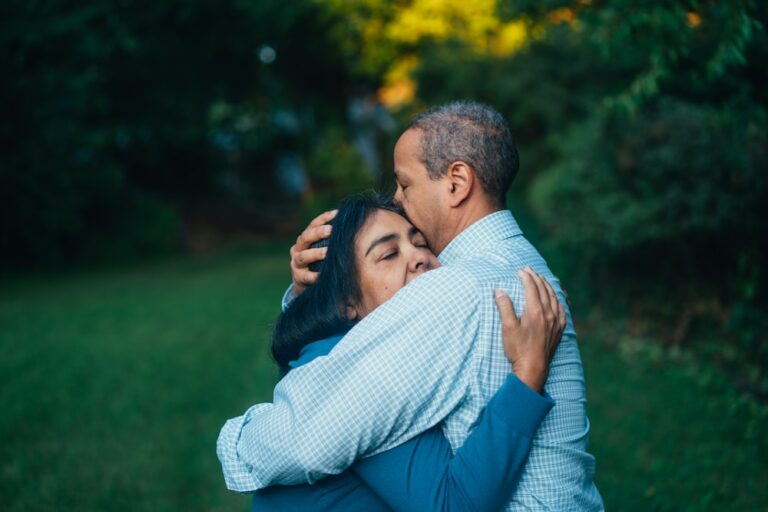How To Manifest Your Own Death
Have you ever wondered about the power of manifestation? The ability to bring your desires into reality through the…

Have you ever wondered about the power of manifestation? The ability to bring your desires into reality through the sheer force of your thoughts and intentions? It may seem like a far-fetched concept, but what if I told you that you have the potential to manifest even the end of your own life?
Manifesting your own death is a profound and controversial practice that delves deep into our understanding of existence. By exploring different perspectives and beliefs surrounding this topic, we can embark on a journey of self-discovery and transformation.
Through this article, we will guide you through various techniques for manifesting your own death, while also addressing potential consequences and ethical considerations.
But before we dive in, let us ponder upon this remarkable coincidence – stumbling upon this very article as you contemplate the mysteries of life and death. Is it merely chance or something more significant at play? Perhaps it is an invitation from the universe to explore these profound questions together.
So, dear reader, if you are ready to embark on this introspective journey towards understanding manifestation and its ultimate culmination in one’s own demise, then let us begin. Open your mind and heart as we delve into the controversies, debates, and transformative power that manifesting death holds.
Understanding the Concept of Manifestation

You can grasp the true essence of manifestation when you understand that it’s not just about wishing for something to happen, but rather actively aligning your thoughts, beliefs, and actions with your desired outcome.
The Law of Attraction states that like attracts like, meaning that what you focus on will manifest in your life. By harnessing the power of intention and directing your energy towards what you desire, you can create a reality that reflects your deepest desires.
Manifestation is an introspective journey that requires self-reflection and a holistic approach to life. It’s about understanding yourself on a deeper level and exploring different perspectives and beliefs.
By shifting your mindset and adopting positive affirmations, you can train your subconscious mind to attract what you want.
Now let’s delve into exploring different perspectives and beliefs as we continue our journey towards understanding manifestation fully.
Exploring Different Perspectives and Beliefs
Explore the vast array of perspectives and beliefs surrounding the topic, delving into a world where thoughts become larger than life. When it comes to manifesting your own death, there are spiritual implications that can’t be ignored.
Some believe that our thoughts have the power to shape our reality, and if we constantly dwell on the idea of death, we may unknowingly attract it towards us. On the other hand, there are those who argue that death is inevitable and cannot be influenced by our thoughts alone.
In terms of psychological effects, contemplating one’s own demise can bring about feelings of fear, anxiety, or even liberation for some individuals. It forces us to confront our mortality and reflect on the meaning of life.
As we explore these perspectives and beliefs, we begin to understand how complex and profound this topic truly is.
Transitioning into techniques for manifesting your own death…
Techniques for Manifesting Your Own Death

Get ready to dive into some mind-bending techniques that can make you question reality and ponder the mysteries of life’s end. By practicing visualization exercises and engaging in spiritual rituals, you can tap into your subconscious and manifest your own death.
1) Visualize the end: Close your eyes and imagine yourself peacefully transitioning from this life to the next. Feel the serenity and acceptance within you as you let go of earthly attachments.
2) Create a sacred space: Set up a tranquil environment where you can connect with the spiritual realm. Light candles, burn incense, or play soothing music to enhance your focus and create an atmosphere conducive to introspection.
3) Seek guidance from higher powers: Call upon spiritual entities or deities that resonate with your beliefs. Ask for their assistance in understanding the mysteries of life and embracing your mortality.
Remember, these techniques should be approached with caution and respect for both yourself and others involved. As we explore potential consequences and ethical considerations, it becomes clear that navigating such practices requires careful consideration.
Potential Consequences and Ethical Considerations
Immersing yourself in the techniques mentioned above is like embarking on a philosophical journey, where you encounter potential consequences and ethical considerations surrounding the exploration of life’s end. Manifesting your own death raises important legal implications that should not be taken lightly. While it may seem tempting to bypass legal and moral boundaries, it is crucial to consider the impact on loved ones and society as a whole. Additionally, the psychological impact of actively manifesting one’s demise can be profound, affecting not only the individual but also those close to them. It is essential to approach this topic with sensitivity and seek guidance from professionals who can provide support during such challenging times. As you delve into these complexities, controversies and debates surrounding manifesting death will come into focus, shedding light on various perspectives without judgment or bias.
Controversies and Debates Surrounding Manifesting Death
Diving into the controversies and debates surrounding the practice of manifesting death, one is confronted with a myriad of conflicting viewpoints and passionate arguments.
The topic of euthanasia is at the forefront of these discussions, with proponents arguing for personal autonomy and the right to die with dignity, while opponents express concerns about potential abuses and the sanctity of life.
Cultural taboos also play a significant role in this debate, as different societies have varying beliefs about death and dying. Some view manifesting death as an act against nature or religious teachings, while others see it as a compassionate choice that relieves suffering.
Navigating through these controversies requires thoughtful reflection and open-mindedness to understand opposing perspectives. Ultimately, finding common ground amidst such complex debates can lead us to a greater understanding of our shared humanity and the importance of compassion in end-of-life decisions.




